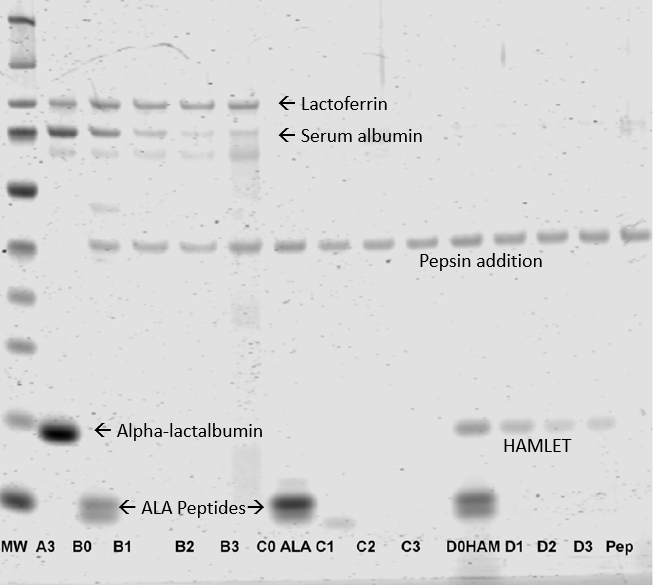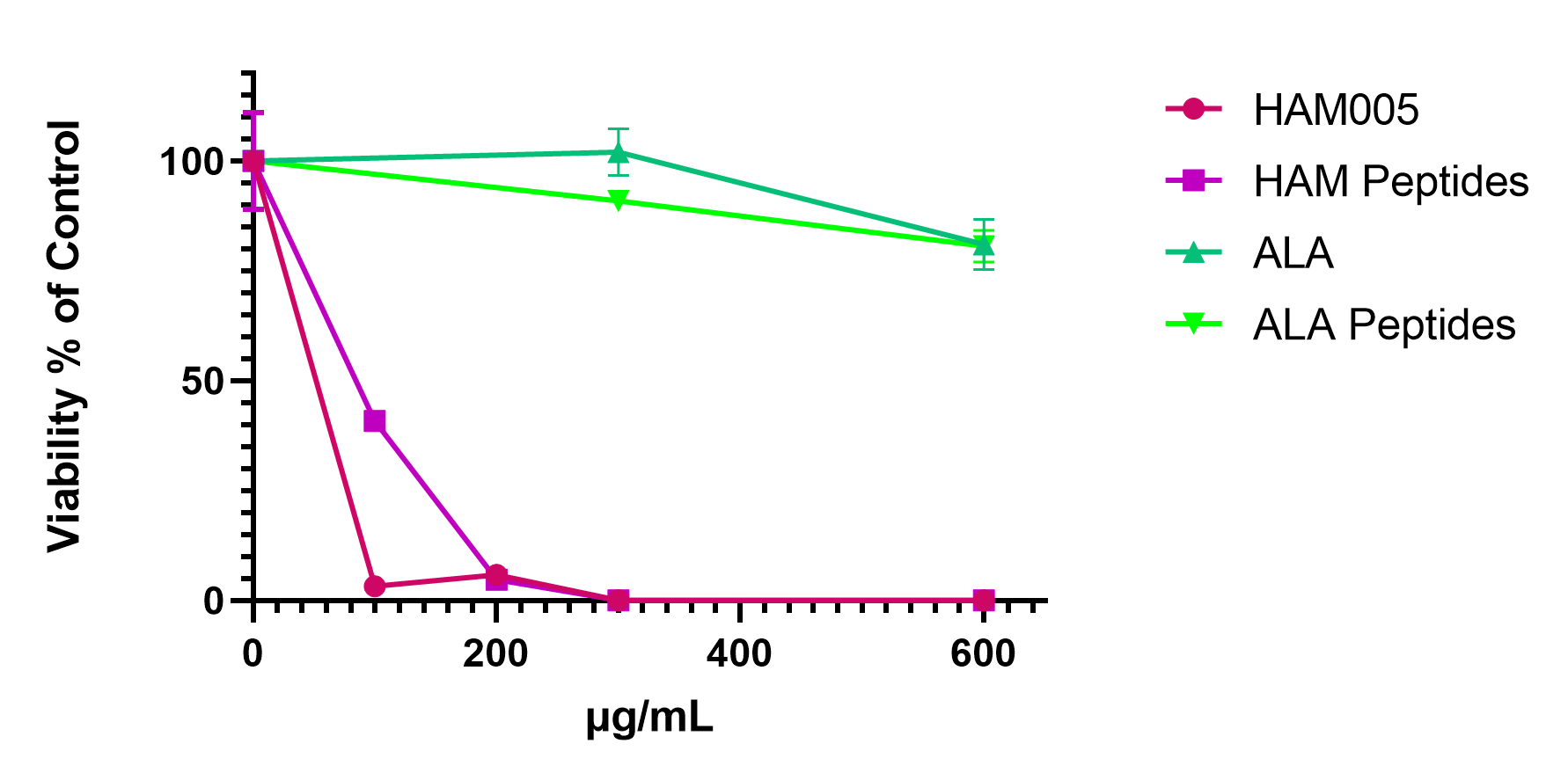Breastfeeding/Human Milk
Breastfeeding/Human Milk 3: Human Milk Bioactives and Composition
19 - The lipid-protein complex HAMLET is more resistant to proteolysis than alpha-lactalbumin in an in vitro model of preterm gastric digestion
Publication Number: 19.201
- CW
Carol L. Wagner, MD (she/her/hers)
Professor of Pediatrics
Medical University of South Carolina College of Medicine
Charleston, South Carolina, United States
Presenting Author(s)
Background: The oleic acid/alpha-lactalbumin complex HAMLET (human alpha-lactalbumin made lethal to tumors) is cytotoxic to various cancerous cell lines and non-transformed immature fetal intestinal cells. It is unknown whether HAMLET is resistant or susceptible to digestion in preterm infant stomach.
Objective: To determine if HAMLET complex is more digestible in a simulated gastric environment than alpha-lactalbumin protein.
Design/Methods:
HAMLET was synthesized after purification of alpha-lactalbumin from human milk whey using previous reported methods. HAMLET was validated using ultra-HPLC-MS/MS confirming high oleic acid binding and Western blot confirming the protein species. Cytotoxicity was verified using MTT assay of FHs74int cells in monoculture. At 37° C, 0.33 mg/mL of HAMLET was digested using 62U/mL of porcine pepsin (0.3mg/mL) in normal saline. To mimic preterm gastric digestion, pH was monitored and reduced from 6.0 to 4.6 pH over 2 hours. Samples were taken at 5, 40, 80, and 120 minutes after the addition of pepsin before stopping the reaction. Densitometry with SDS PAGE Gel and Coomassie stain was used to quantify the proteolysis of milk proteins. Band density were measured with digital software against starting controls. Preterm whey, native ALA and pepsin were used as positive and negative PAGE controls. Peptide fragments of HAMLET and ALA were incubated with FHs74Int cells using an MTT assay to determine relative cytotoxicity. Tests were performed 2 independent times.
Results: Proteolysis was highly dependent on the pH of the solution in the presence of pepsin. After 2 hours with a pH gradient resembling preterm gastric digestion, HAMLET was more resistant to pepsin proteolysis than native protein with 96% of HAMLET protein intact vs 84% ALA intact after 2 hours. At the end of 2 hours, 11.4% of HAMLET proteins were present as short peptides vs. 14.5% of ALA proteins. When maintaining a constant 4.6 pH throughout the digestion, 7% of HAMLET was still present at 2 hours but no intact ALA was seen (Figure 1). In a cellular monoculture model, peptide fragments of HAMLET were cytotoxic to FHs74int fetal intestinal cells, but not ALA fragments (Figure 2).
Conclusion(s):
HAMLET is more resistant proteolysis than native ALA in a preterm model of infant gastric digestion. The cytotoxicity of HAMLET to fetal intestinal cells in monoculture was not affected by complex proteolysis by pepsin, suggesting that HAMLET’s activity is highly dependent on free oleic acid. Though more advanced intestinal models are needed, HAMLET has the potential to impact the preterm infant intestine.

